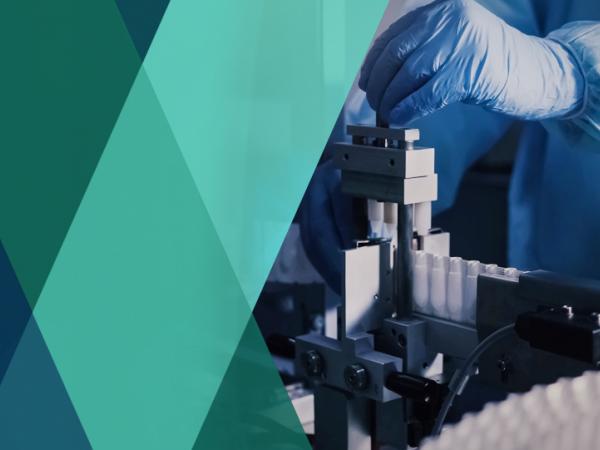
FDA Regulatory
Viewpoints
Filter by:
FDA Issues Drug Shortage Report Identifying Root Causes and Potential Solutions
November 7, 2019 | Blog
Despite congressional attention, Food and Drug Administration (FDA) action, public and private sector efforts, and ongoing media coverage, drug shortages remain a significant public health crisis in the United States. In response to that crisis (and at Congress’s urging), the FDA formed the interagency Drug Shortages Task Force (Task Force) to study the issue. FDA has now released the report resulting from the Task Force’s activities: “Drug Shortages: Root Causes and Potential Solutions.” The report, issued on October 29, 2019, concludes that drug shortages are primarily the consequence of economic factors driven by private and public business practices. Those practices, according to the report, disrupt the supply chain availability of marketed pharmaceuticals. The report offers recommendations to provide a framework for stakeholders to address the underlying economic factors leading to drug shortages.
Read more
The Other Shoe Drops: FDA Withdraws 30-Year-Old Homeopathic Drug Enforcement Policy and Puts Industry on Notice of Further Regulatory Pressure
October 25, 2019 | Blog | By Joanne Hawana, Benjamin Zegarelli
To anyone who has been following government enforcement and private litigation trends related to the over-the-counter (OTC) homeopathic drug industry over the past several years, the Food and Drug Administration’s (FDA) announcement on October 24, 2019 likely came as no surprise. But to stakeholders in this industry, it was certainly unwelcome news and may portend a coming wave of unapproved drug enforcement actions by the FDA.
Read more
FDA Updates Digital Health Guidances to Align with 21st Century Cures Act
October 9, 2019 | Blog | By Benjamin Zegarelli
On September 26, 2019, FDA released a six revised digital health guidances. The primary objective of these revisions was to bring the guidances into alignment with the software function exemptions described in Section 3060 of the 21st Century Cures Act (the “Cures Act”). The medical device community has anticipated these changes since Congress passed the Cures Act almost three years ago in December 2016.
Read more
HHS Files Brief in D.C. Circuit Supporting Drug Pricing Transparency Rule
September 30, 2019 | Blog
As promised, the Department of Health and Human Services (HHS) filed a brief in the United States Court of Appeals for the District of Columbia Circuit challenging the district court’s holding that the Secretary lacked the authority to compel drug manufacturers from disclosing drug prices in direct-to-consumers television advertisements (DTC rule). On September 23, 2019, HHS filed its appeal in the D.C. Circuit against plaintiffs Merck & Co., Eli Lilly and Co., and Amgen Inc. The brief argues that the district court erred in holding that HHS lacks the statutory authority through the Social Security Act (SSA) to force the DTC rule upon drug manufacturers because they are not direct participants in the Medicare and Medicaid programs.
Read more
GAO Report Sheds Light on Drug Manufacturers’ Expanded Access Programs
September 17, 2019 | Blog | By Joanne Hawana
Out of a sample of 29 non-representative drug manufacturers surveyed earlier this year, 23 had publicly posted policies related to accessing their investigational drugs outside of the context of formal clinical trials, according to the General Accountability Office (GAO). Of those 23 company policies, GAO reports that nineteen of them stated that the manufacturer would consider individual requests for expanded access to their drug candidates, while the remaining four companies stated that such requests would not be considered at the present time. Moreover, approximately half of those companies who would be open to meeting a patient’s request for expanded access also noted expressly in their policies that additional procedures would need to be followed, including review of the request by the Food and Drug Administration (FDA) and an institutional review board (IRB). The GAO study – released on September 9, 2019 – was conducted in response to a congressional mandate (included in the FDA Reauthorization Act of 2017) for the investigative body GAO to review the agency’s actions to facilitate patient access to investigational drugs.
Read more
Telemedicine Platform Recalled Over Failure to Obtain Pre-Market Clearance or Approval from FDA
August 29, 2019 | Blog | By Benjamin Zegarelli, Ellen Janos
On August 8, 2019, FDA issued a notice on its medical device recall database that a company called Opternative, Inc. had initiated a recall for the Visibly Online Refractive Vision Test, a software application offered directly to consumers. This represents a recent example of FDA taking enforcement action against a telemedicine software company that ultimately resulted in removal of the app from commercial distribution.
Read more
HHS Drug Pricing Disclosure Rule: Chance at a Renewed Life Following District Court Appeal?
August 26, 2019 | Blog | By Joanne Hawana
Looks like the Drug Pricing Disclosure Rule may not have seen its last day in court. On August 21, 2019, the U.S. Department of Health and Human Services (HHS) filed a notice of appeal against a federal judge’s decision to block an HHS final rule that would require drugmakers to disclose product list prices within consumer-directed television advertisements for certain prescription drugs.
Read more
Congress Looking to Streamline CBD Drug Research
August 14, 2019 | Blog
Recently, a bipartisan group of Senators introduced the Cannabidiol and Marijuana Research Expansion Act (S. 2032), a bill to encourage scientific and medical research on marijuana and its compounds including cannabidiol, or CBD. The bill would expedite the process by which researchers can request an increase in the amount of a Schedule I substance used for approved research by sidestepping the FDA when requesting more marijuana for use in their research. The legislation also would streamline development of FDA-approved drugs that use CBD and marijuana by allowing accredited medical and osteopathic schools, practitioners, research institutions and manufacturers with a Schedule I registration to manufacture marijuana for research.
Read more
In Policy Reversal, HHS and FDA Propose Plan to Import Foreign Drugs
August 8, 2019 | Blog | By Benjamin Zegarelli
On July 31, 2019, the U.S. Department of Health and Human Services (HHS) and the Food and Drug Administration (FDA) jointly published a proposal, called the Safe Importation Action Plan, to allow certain entities to import drugs from foreign entities. While this development was not a surprise given President Trump’s campaign promises to lower drug prices by, among other things, removing barriers to drug product importation, it represents a stark departure from prior agency positions that the importation of drugs could not be adequately verified as safe and would not lead to significant cost reductions.
Read more
Three Things to Learn from Delaware Supreme Court’s Opinion on Board of Director Oversight Duties (Marchand v. Barnhill)
August 6, 2019 | Blog
In June 2019, the Delaware Supreme Court issued a decision reaffirming a risk of director liability where there is no board-level reporting process for essential compliance matters. The facts of the case arise from a 2015 listeria outbreak at Blue Bell manufacturing which resulted in the death of three people. The Delaware case reaffirmed the position that directors may be subject to liability if the director “(1) completely fail[ed] to implement any reporting or information system or controls, or (2) having implemented such a system or controls, consciously fail[ed] to monitor or oversee its operations thus disabling themselves from being informed of risks or problems requiring their attention.”
Read more
FDA Invites Compounding Outsourcing Facilities' Comments to Understand Industry Challenges and Opportunities
July 29, 2019 | Blog
On July 29, 2019, the Food and Drug Administration (FDA) published a notice to the Federal Register (84 Fed. Reg. 36609). The notice invites comments on information collected in connection with FDA research by obtaining information from pharmacists and other management at outsourcing facilities as well as related compounding businesses. The collected information will support a comprehensive analysis of the outsourcing facility sector with hopes to inform future FDA work in this area.
Read more
Software Update: The Latest on FDA’s Pre-Cert Pilot
July 22, 2019 | Blog
Regular readers of this blog know that we’re closely following the FDA’s proposed regulatory framework for software as a medical device (SaMD), known as precertification—Pre-Cert for short. Generally, Pre-Cert involves a premarket evaluation of a software developer’s culture of quality and organizational excellence and continual, real-time postmarket analyses to assure software meets the statutory standard of reasonable assurance of safety and effectiveness.
Read more
Federal Judge Strikes Down HHS Drug Pricing Disclosure Rule
July 9, 2019 | Blog
In follow-up to our previous post, the pharmaceutical industry gained a win on July 8th when a federal judge struck down the Trump administration’s rule that would have required drugmakers to include list prices for drugs in TV ads.
Read more
Pharmaceutical Companies Object to HHS Drug Pricing Disclosure Rule
July 1, 2019 | Blog | By Joanne Hawana
Several parties from the pharmaceutical industry have teamed up with an advertising association to file a lawsuit against the Department of Health and Human Services (HHS) to prevent a new drug pricing disclosure rule from going into effect. The legal challenge was filed on June 14, 2019 and takes issue with a final rule adopted by HHS on May 8, 2019 (which we previously blogged about here) that purports to provide consumers with information regarding the price of prescription drugs. However, opponents to the HHS rule counter that the opposite will occur and that it will actually mislead patients about the price of prescription drugs. This point may not be difficult for the plaintiffs to demonstrate in support of their request for a declaratory judgment that the rule is unlawful, since even HHS has admitted in the final rule preamble that the new requirement may “discourage patients from using beneficial medications, reduce access, and potentially increase total cost of care.”
Read more
OIG Report Finds a Small Percentage of Hospitals Do Not Obtain Compounded Drugs from FDA-Registered Outsourcing Facilities
June 17, 2019 | Blog | By Joanne Hawana
On June 6, 2019, the U.S. Department of Health and Human Services’ Office of Inspector General (OIG) issued a report that found among a sample U.S. hospitals that obtained non-patient-specific (NPS) compounded drugs from outside compounders, 89% of hospitals obtained them only from compounders that were registered with the U.S. Food and Drug Administration (FDA) as outsourcing facilities. The OIG study was conducted to provide the FDA with insights to improve its oversight of compounders and enhance patient safety. According to the study, “factors associated with quality, including registration with FDA as an outsourcing facility, are among the most important factors considered when hospitals decide where to obtain their non-patient-specific compounded drugs.” Although use of compounded drugs is widespread in hospitals, the OIG also found that it is rare for hospitals to consider registering their own pharmacies as outsourcing facilities.
Read more
Navigating the Legalization of Hemp under the 2018 Farm Bill Involves Changes to the Issuance of Federal Trademarks in the Cannabis Industry
June 11, 2019 | Blog | By Susan Neuberger Weller
Legalizing “hemp” under the Agricultural Improvement Act of 2018 (2018 Farm Bill) has triggered an important change for the examination of federal trademark applications concerning cannabis and cannabis-derived goods and services. In response to the Bill’s enactment on December 20, 2018, the United States Patent and Trademark Office (USPTO) issued a new examination guide to clarify its examination procedures involving hemp goods and services. For businesses in the cannabis industry, the examination guide (recently issued on May 2, 2019) will impact the viability of federal trademark applications filed on or after December 20, 2018 that were once previously barred.
Read more
Cannabis-Derived Ingredients in FDA-Regulated Products: More Questions than Answers at FDA’s May 2019 Public Hearing
June 3, 2019 | Blog | By Joanne Hawana
As most folks with any interest in the burgeoning cannabidiol (CBD) industry likely know, on May 31, 2019, the Food and Drug Administration held a public hearing “to obtain scientific data and information about the safety, manufacturing, product quality, marketing, labeling, and sale of products containing cannabis or cannabis-derived compounds.” Stakeholders who attended the hearing presented many diverse viewpoints and the FDA panelists – who were in listening mode – received extensive information from across that spectrum of perspective.
Read more
FDA Ratchets Up Pressure on Homeopathic Drug Manufacturers
May 23, 2019 | Blog | By Benjamin Zegarelli
On May 14, FDA announced that it issued five Warning Letters to companies that manufacture and market homeopathic drugs for human use. The letters all cite cGMP deficiencies relating to inspectional observations and conclude that the products are misbranded prescription drugs under the Federal Food, Drug, and Cosmetic Act because “in light of their toxicity or other potentiality for harmful effect, or the method of their use, or the collateral measures necessary to their use, they are not safe for use except under the supervision of a practitioner licensed by law to administer such drugs” and they are not labeled for prescription use only.
In 2019 so far, FDA has issued Warning Letters to eleven separate homeopathic drug manufacturers, including the five letters referenced above. All of the Warning Letters, except one, cite observations from inspections and focus on cGMP and quality violations at the manufacturing facilities, including contamination and varying amounts of active ingredients, that could lead to consumer harm.
Read more
In 2019 so far, FDA has issued Warning Letters to eleven separate homeopathic drug manufacturers, including the five letters referenced above. All of the Warning Letters, except one, cite observations from inspections and focus on cGMP and quality violations at the manufacturing facilities, including contamination and varying amounts of active ingredients, that could lead to consumer harm.
FDA Finalizes Guidance on Biosimilar Interchangeability, Reiterates Case-by-Case Approach to Data Requirements
May 16, 2019 | Blog | By Joanne Hawana
On May 10, 2019, the Food and Drug Administration issued highly anticipated final guidance that gives drug-makers more clarity on how to demonstrate that a proposed biosimilar product meets the statutory interchangeability standard under the Public Health Service Act (PHS Act or the Act). According to the Act, an interchangeable biosimilar may be substituted for the original biological product without the involvement of a prescriber, similar to the way generic drugs are routinely substituted for brand name drugs at the pharmacy level. The Final Guidance, entitled “Considerations in Demonstrating Interchangeability with a Reference Product,” is shorter than the draft version released over two years ago, in response to industry feedback, but generally tracks the original policy positions proposed in the draft, with a few notable exceptions summarized below.
Read more
Update on FDA’s Comprehensive Regenerative Medicine Policies and Enforcement Activities
April 29, 2019 | Blog | By Joanne Hawana
FDA's Comprehensive Regenerative Medicine Policy Framework is nearing the halfway mark of the “grace period” the Agency extended for certain regenerative medicine product developers to come into compliance by obtaining investigational new drug applications (INDs) and working towards premarket approval of their products.
Read more
Explore Other Viewpoints:
- Data Centers & Digital Infrastructure
- AI: The Washington Report
- Antitrust and Federal Regulation
- Appellate
- Arbitration, Mediation & Alternate Dispute Resolution
- Artificial Intelligence
- Awards
- Bankruptcy & Restructuring
- California Land Use
- Cannabis
- Class Action
- Complex Commercial Litigation
- Construction
- Consumer Product Safety
- Corporate Governance (ESG)
- Cross-Border Asset Recovery
- DEI Legal Developments
- Debt Financing
- Direct Investing (M&A)
- Diversity
- EB-5 Financing
- Education & Nonprofits
- Employment
- EnforceMintz
- Environmental (ESG)
- Environmental Enforcement Defense
- Environmental Law
- Environmental, Social, and Corporate Governance (ESG)
- FDA Regulatory
- FDA in Flux
- False Claims Act
- Federal Circuit Appeals
- Financial Institution Litigation
- Government Law
- Growth Equity
- Health Care
- Health Care Compliance, Fraud and Abuse, & Regulatory Counseling
- Health Care Enforcement & Investigations
- Health Care Transactions
- Health Information Privacy & Security
- IP Due Diligence
- IPRs & Other Post Grant Proceedings
- Immigration
- Impacts of a New US Administration
- Insolvency & Creditor Rights Litigation
- Institutional Investor Class Action Recovery
- Insurance & Financial Services
- Insurance Consulting & Risk Management
- Insurance and Reinsurance Problem-Solving & Dispute Resolution
- Intellectual Property
- Investment Funds
- Israel
- Licensing & Technology Transactions
- Life Sciences
- Litigation & Investigations
- M&A Litigation
- ML Strategies
- Managed Care
- Medicare, Medicaid and Commercial Coverage & Reimbursement
- Mergers & Acquisitions
- Patent Litigation
- Patent Prosecution & Strategic Counseling
- Pharmacy Benefits and PBM Contracting
- Portfolio Companies
- Privacy & Cybersecurity
- Private Client
- Private Equity
- Pro Bono
- Probate & Fiduciary Litigation
- Products Liability & Complex Tort
- Projects & Infrastructure
- Public Finance
- Real Estate Litigation
- Real Estate Transactions
- Real Estate, Construction & Infrastructure
- Retail & Consumer Products
- Securities & Capital Markets
- Securities Litigation
- Social (ESG)
- Special Purpose Acquisition Company (SPACs)
- Sports & Entertainment
- State Attorneys General
- Strategic IP Monetization & Licensing
- Sustainable Energy & Infrastructure
- Tax
- Technology
- Technology, Communications & Media
- Technology, Communications & Media Litigation
- Trade Secrets
- Trademark & Copyright
- Trademark Litigation
- Unified Patent Court (UPC)
- Value-Based Care
- Venture Capital & Emerging Companies
- White Collar Defense & Government Investigations
- Women's Health and Technology









